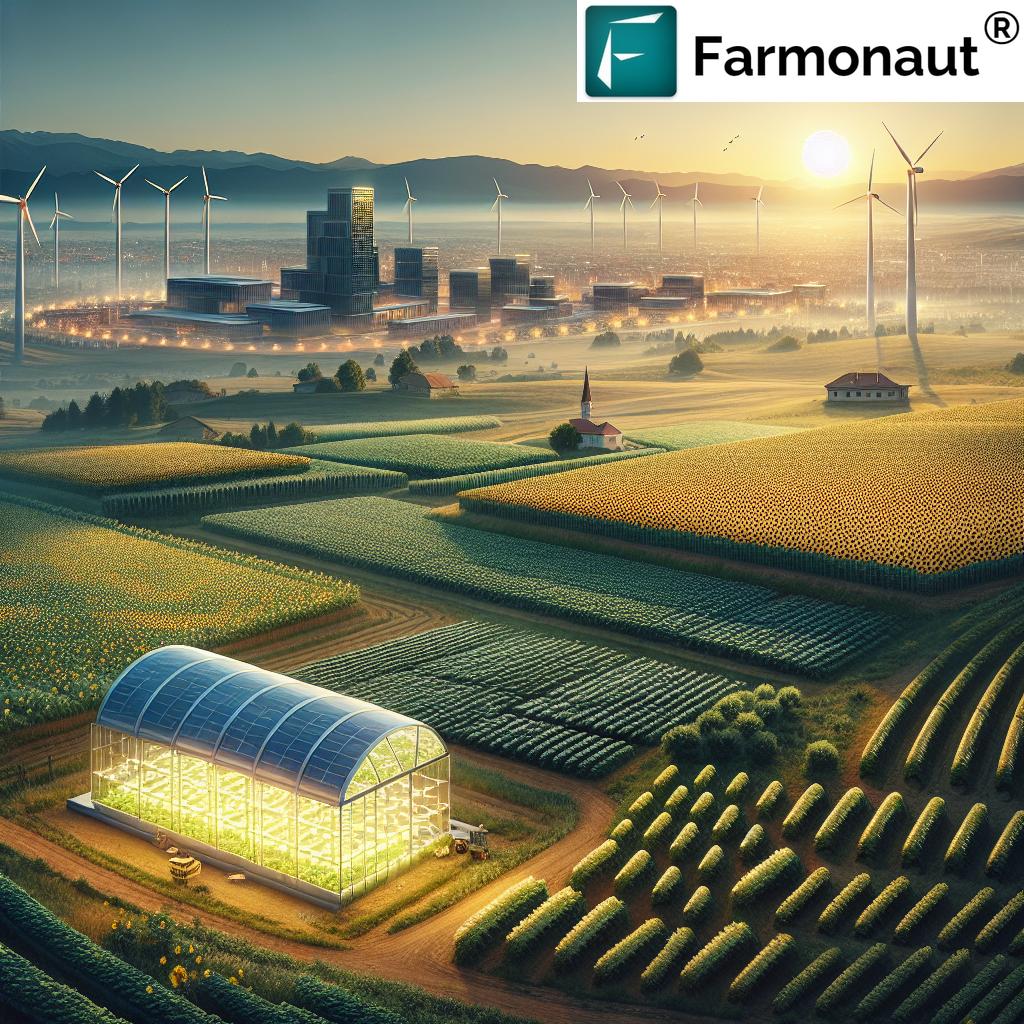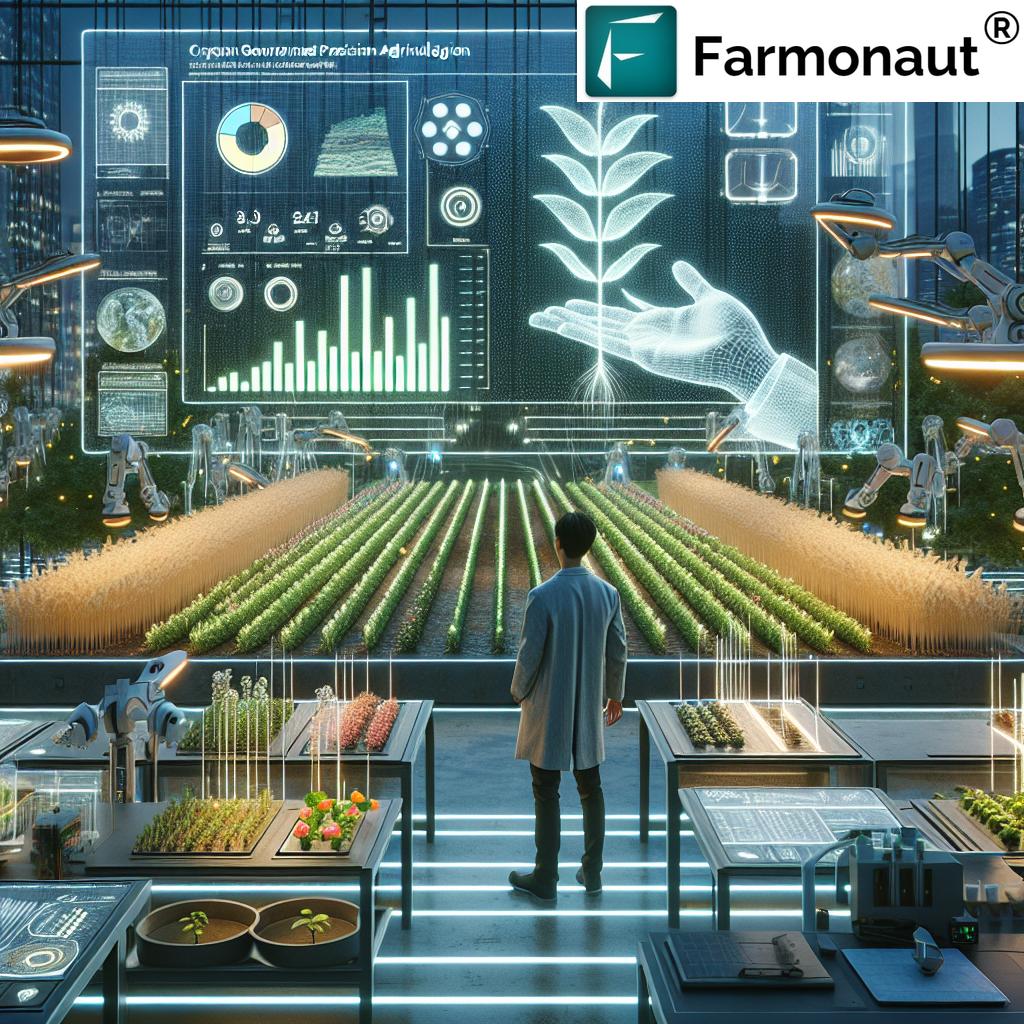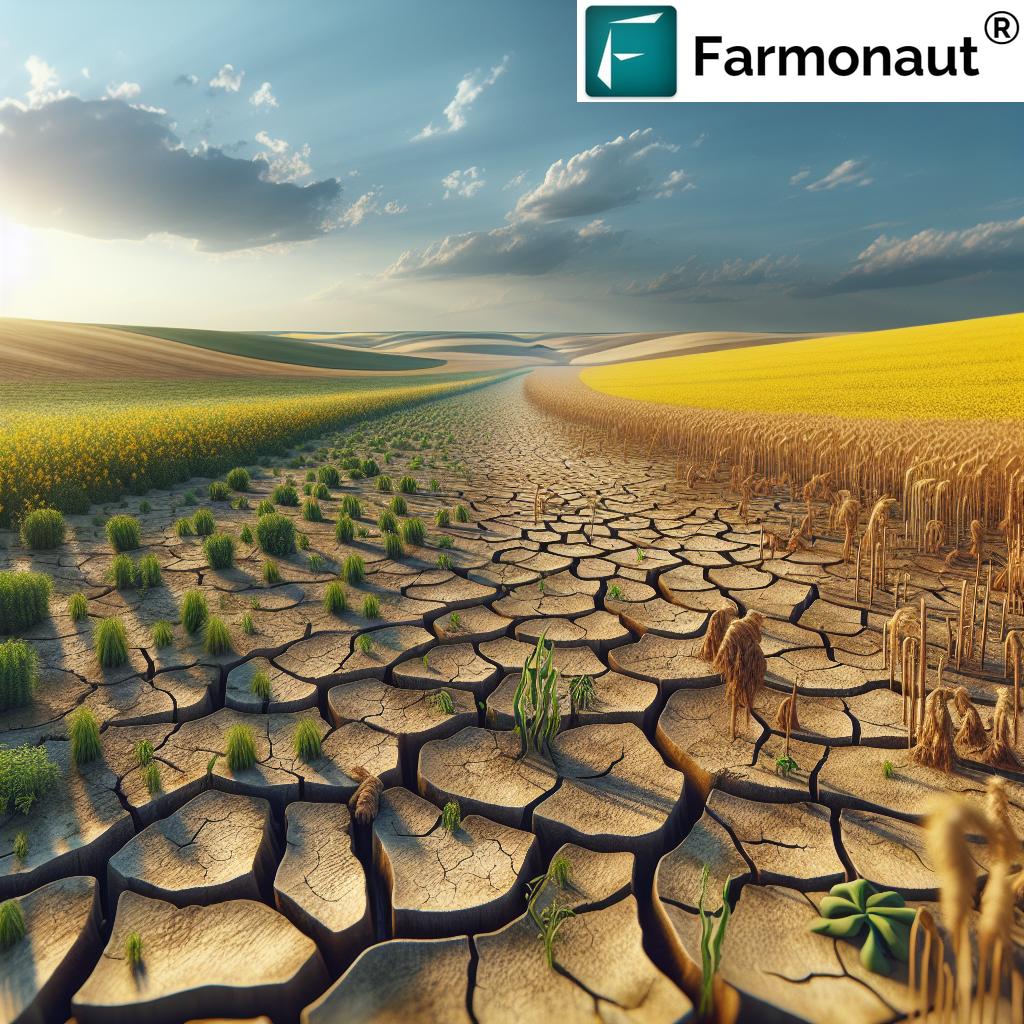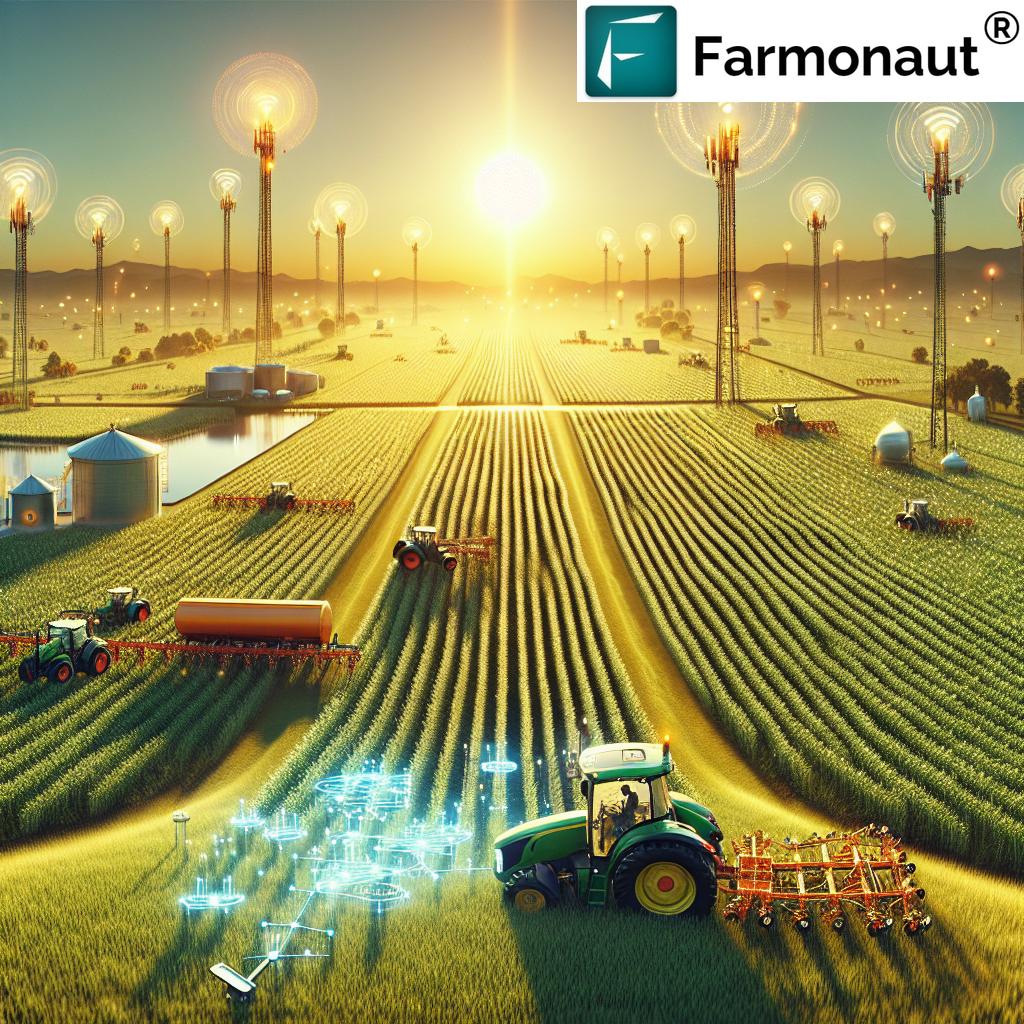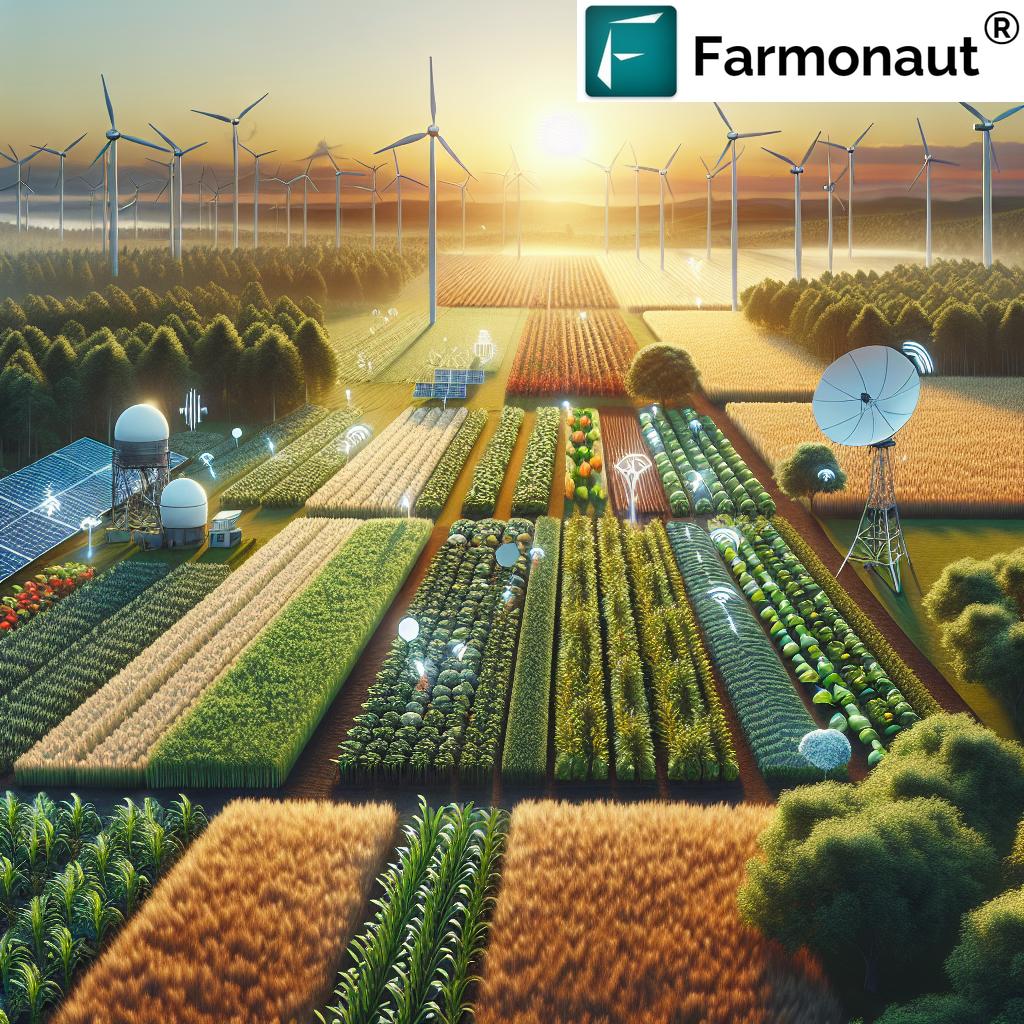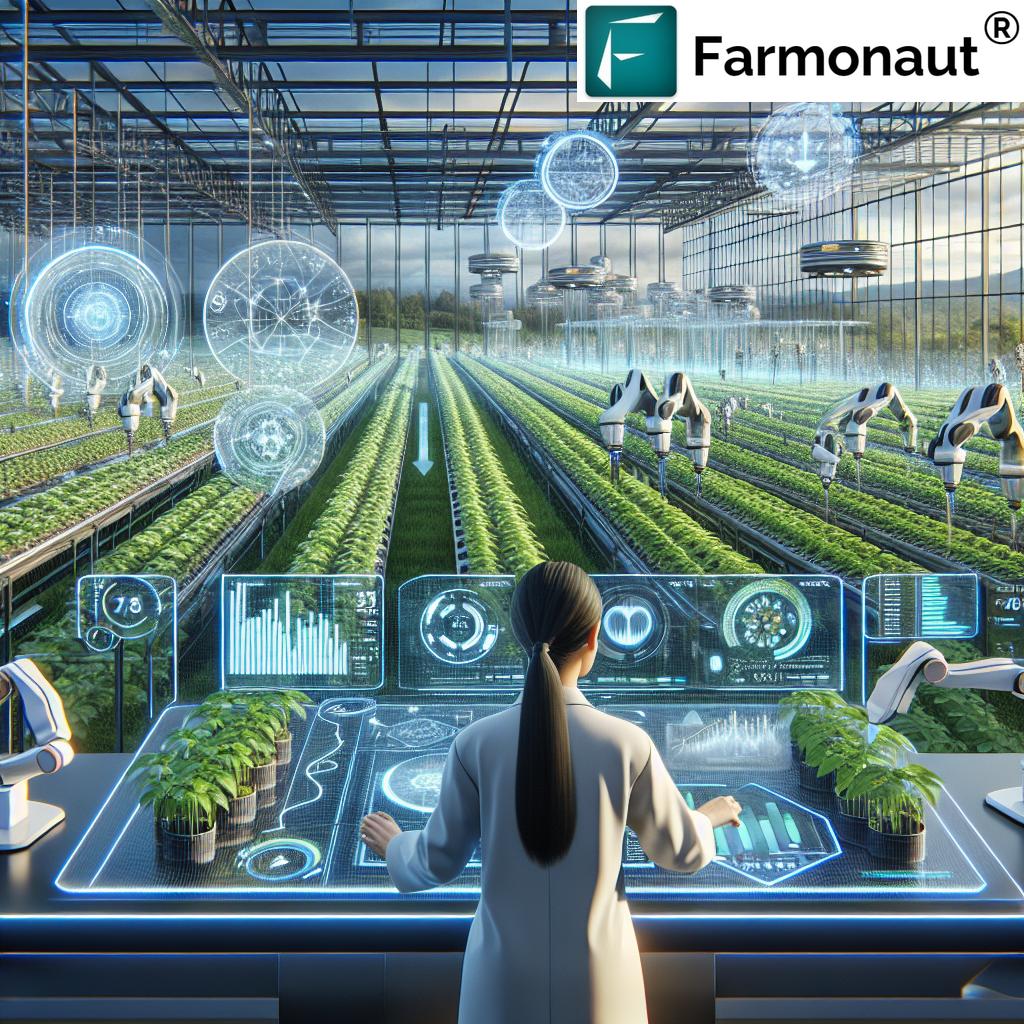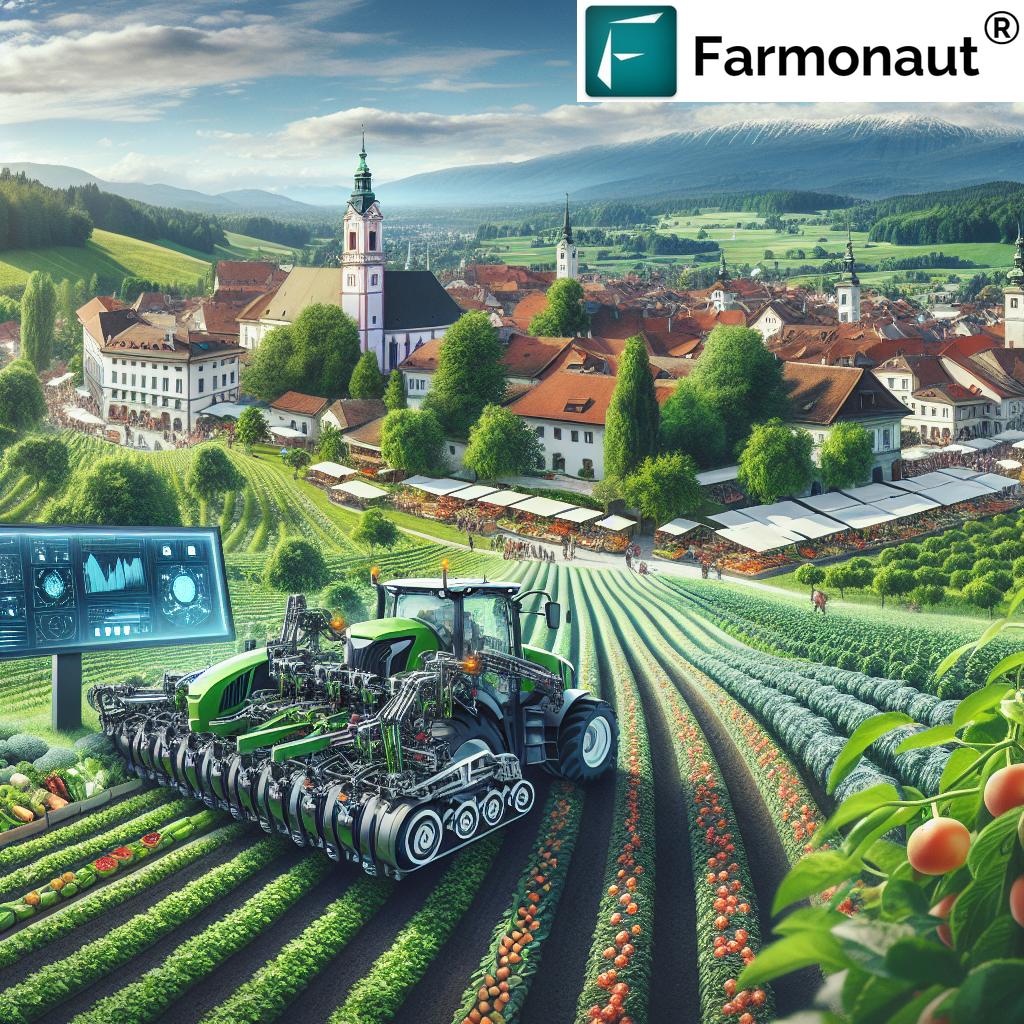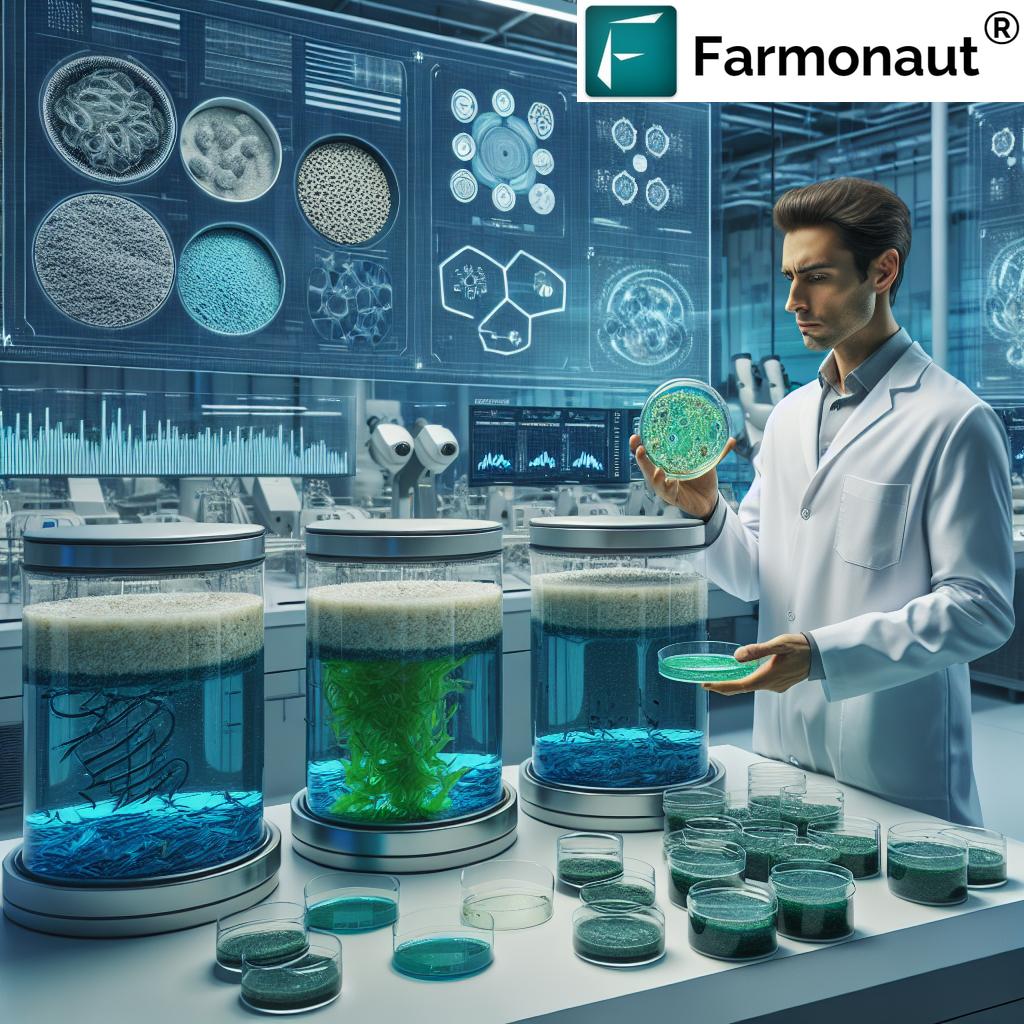The Future of European Farming: Sustainable Practices and Innovative Technologies Reshaping Agriculture in the EU
“The Common Agricultural Policy (CAP) accounts for approximately 40% of the EU’s total budget, highlighting its significance in European agriculture.”
As we delve into the transformative landscape of European farming, we find ourselves at the cusp of a new era in agriculture. The European Union (EU) is pioneering a revolution in farming practices, driven by the dual imperatives of sustainability and innovation. In this comprehensive exploration, we’ll uncover the trends, challenges, and opportunities shaping the future of farming in the EU.
The Pillars of European Agriculture: Policies and Practices
At the heart of European agriculture lies a complex web of policies and practices designed to support farmers, ensure food security, and promote sustainable development. Let’s examine the key elements:
The Common Agricultural Policy (CAP): A Cornerstone of EU Farming
The Common Agricultural Policy (CAP) stands as the bedrock of European agricultural policy. Established in 1962, the CAP has evolved significantly over the decades, adapting to changing economic, environmental, and social contexts. Today, it focuses on:
- Ensuring a stable supply of affordable food for EU citizens
- Supporting farmers and improving agricultural productivity
- Helping tackle climate change and sustainable management of natural resources
- Maintaining rural areas and landscapes across the EU
- Keeping the rural economy alive by promoting jobs in farming, agri-food industries, and associated sectors
The CAP’s influence on European farming cannot be overstated. It shapes agricultural practices, influences market dynamics, and plays a crucial role in rural development across the continent.
Sustainable Farming Practices in Europe: A Paradigm Shift
Sustainability has become the watchword in European agriculture. Farmers across the EU are increasingly adopting practices that reduce environmental impact while maintaining productivity. These include:
- Precision agriculture techniques
- Organic farming
- Agroforestry
- Conservation tillage
- Integrated pest management
These practices not only contribute to environmental conservation but also often lead to improved soil health, reduced input costs, and enhanced biodiversity.
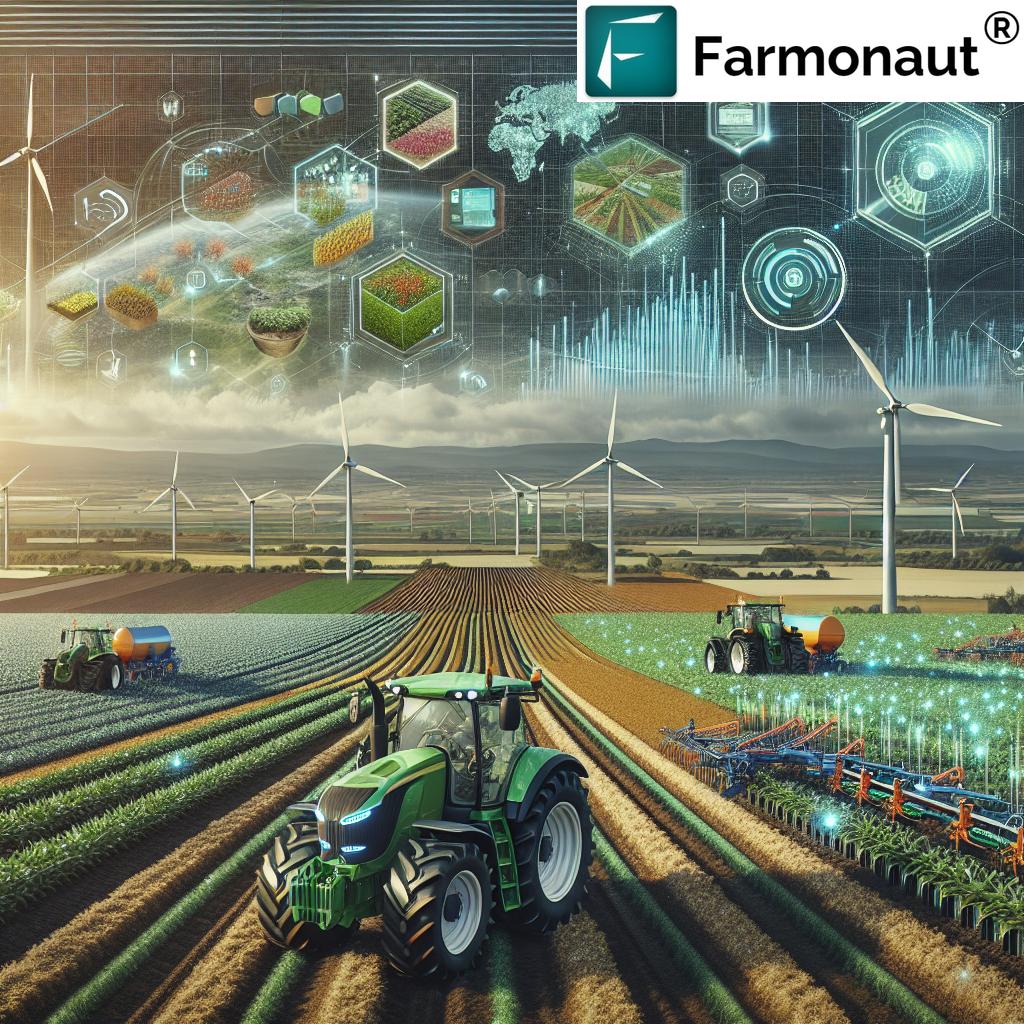
The European Green Deal: Transforming Agriculture
The European Green Deal represents a ambitious plan to make the EU’s economy sustainable. At its core is the Farm to Fork Strategy, which aims to make food systems fair, healthy, and environmentally friendly. Key targets include:
- Reducing the use of chemical pesticides by 50% by 2030
- Reducing fertilizer use by at least 20% by 2030
- Reducing sales of antimicrobials for farmed animals and aquaculture by 50% by 2030
- Achieving 25% of agricultural land under organic farming by 2030
These targets are driving significant changes in farming practices across the EU, encouraging innovation and the adoption of new technologies.
Agricultural Innovation and Technology: Driving Change in European Farming
Innovation is at the forefront of the transformation in European agriculture. From precision farming to AI-driven crop management, technology is reshaping how we grow food.
GIS Applications in Agriculture: Mapping the Future of Farming
Geographic Information Systems (GIS) have become indispensable tools in modern agriculture. In the EU, GIS applications are being used for:
- Crop monitoring and yield prediction
- Soil mapping and analysis
- Precision agriculture and variable rate technology
- Water management and irrigation planning
- Pest and disease monitoring
These applications allow farmers to make data-driven decisions, optimizing resource use and improving yields.
Renewable Energy in Farming: Powering Sustainable Agriculture
The integration of renewable energy sources in agriculture is gaining momentum across Europe. Farmers are increasingly turning to:
- Solar panels on farm buildings
- Wind turbines on agricultural land
- Biogas production from agricultural waste
- Geothermal energy for greenhouse heating
These initiatives not only reduce the carbon footprint of farming operations but also provide additional income streams for farmers.
Climate Change Impacts on European Farming: Challenges and Adaptations
Climate change poses significant challenges to European agriculture, including:
- Increased frequency and severity of extreme weather events
- Changes in precipitation patterns
- Shifting growing seasons
- New pest and disease pressures
Farmers across the EU are adapting to these challenges through various strategies:
- Crop diversification and rotation
- Water-efficient irrigation systems
- Climate-resilient crop varieties
- Improved soil management practices
These adaptations are crucial for ensuring food security and maintaining agricultural productivity in the face of climate change.
Agricultural Cooperatives in Europe: Strength in Unity
Agricultural cooperatives play a vital role in European farming, providing support and services to farmers across the continent. These cooperatives:
- Enhance bargaining power for farmers
- Provide access to markets and processing facilities
- Offer shared resources and equipment
- Facilitate knowledge sharing and best practices
The cooperative model has proven particularly effective in helping small and medium-sized farms remain competitive in an increasingly globalized market.
“European agriculture contributes to about 1.3% of the EU’s GDP and employs around 9.7 million people across the continent.”
The Future of Farming in EU: Trends and Predictions
As we look to the future of European farming, several key trends are emerging:
- Increased adoption of precision agriculture technologies
- Growing emphasis on vertical farming and urban agriculture
- Rise of alternative protein sources, including plant-based and cultured meat
- Integration of blockchain technology for supply chain transparency
- Expansion of agroforestry and regenerative agriculture practices
These trends point towards a future where farming is more efficient, sustainable, and technologically advanced.
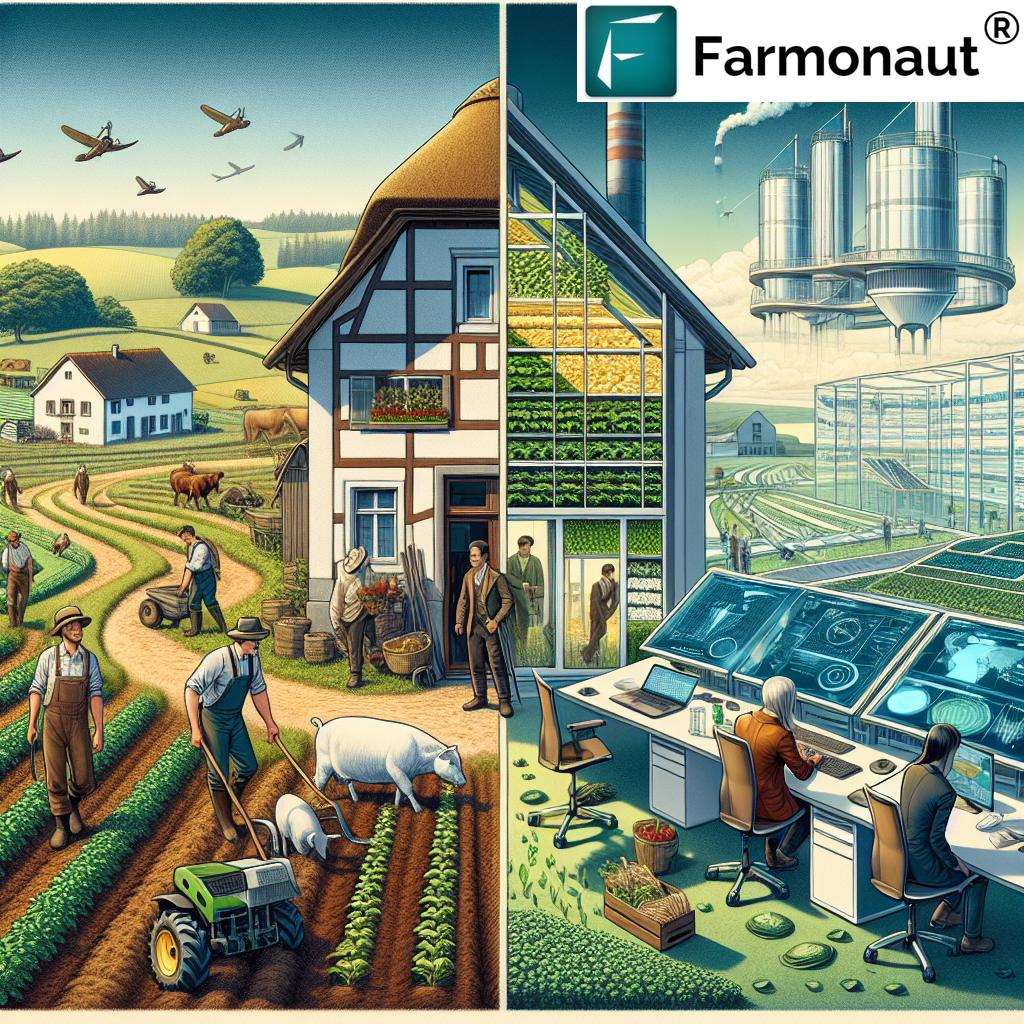
The Role of Farmonaut in European Agriculture
In this rapidly evolving landscape, Farmonaut is playing a crucial role in supporting European farmers and agribusinesses. Our advanced satellite-based farm management solutions are helping to drive the adoption of precision agriculture across the continent.
Through our web app, Android app, and iOS app, we provide farmers with real-time crop health monitoring, AI-based advisory systems, and resource management tools. These technologies align perfectly with the EU’s goals for sustainable and efficient agriculture.
Our API and API Developer Docs also allow for seamless integration of our satellite and weather data into other agricultural systems, further supporting innovation in the sector.
European Agriculture Sustainability Metrics
| Country | Organic Farming Area (% of total agricultural land) | Renewable Energy in Agriculture (% of total energy use) | Water Use Efficiency (m³/hectare) | GHG Emissions from Agriculture (CO2 equivalent/year) | Adoption of Precision Agriculture Technologies (% of farms) |
|---|---|---|---|---|---|
| France | 8.5% | 20% | 5,500 | 76 million tons | 35% |
| Germany | 9.7% | 25% | 4,800 | 66 million tons | 40% |
| Spain | 10.1% | 18% | 6,200 | 39 million tons | 30% |
| Italy | 15.2% | 22% | 5,800 | 30 million tons | 28% |
| Netherlands | 3.8% | 30% | 3,500 | 18 million tons | 55% |
Challenges and Opportunities in European Agriculture
While the future of European farming looks promising, it’s not without its challenges. Some of the key issues facing the sector include:
- Balancing productivity with environmental sustainability
- Addressing labor shortages in rural areas
- Managing the economic pressures of global competition
- Adapting to changing consumer preferences and dietary trends
- Navigating complex regulatory environments
However, these challenges also present opportunities for innovation and growth. The EU’s strong focus on research and development in agriculture is helping to address these issues through technological advancements and policy initiatives.
The Role of Women in European Agriculture
Women play a crucial role in European agriculture, contributing significantly to farm management, rural development, and agricultural innovation. The EU has implemented various initiatives to support and empower women in farming, including:
- Training programs focused on agricultural entrepreneurship
- Funding schemes for women-led agricultural projects
- Networking platforms for women in agriculture
- Policies promoting gender equality in rural areas
These efforts are helping to create a more diverse and inclusive agricultural sector across Europe.
International Collaborations and Trade in European Agriculture
European agriculture is deeply interconnected with global markets. The EU’s approach to international agricultural trade includes:
- Negotiating free trade agreements with key partners
- Promoting EU agricultural products in international markets
- Collaborating on global food security initiatives
- Sharing best practices in sustainable agriculture with other regions
These international engagements help to strengthen the competitiveness of European agriculture while contributing to global sustainable development goals.
Conclusion: A Sustainable and Innovative Future for European Farming
As we’ve explored throughout this article, the future of European farming is being shaped by a complex interplay of policies, technologies, and environmental considerations. The EU’s commitment to sustainable agriculture, coupled with the innovative spirit of its farmers and agribusinesses, is driving a transformation in how we produce food.
From the implementation of precision agriculture technologies to the adoption of renewable energy in farming, European agriculture is at the forefront of global efforts to create a more sustainable and resilient food system. While challenges remain, the sector’s ability to adapt and innovate promises a bright future for European farming.
As we move forward, companies like Farmonaut will continue to play a crucial role in supporting this transformation. By providing farmers with the tools and insights they need to optimize their operations and reduce their environmental impact, we’re contributing to the realization of a more sustainable and productive agricultural sector in Europe.
The journey towards sustainable and innovative farming in the EU is ongoing, and we’re excited to be part of this transformative process. Together, we can create a future where agriculture not only feeds the world but also nurtures our planet.
FAQ Section
Q1: What is the Common Agricultural Policy (CAP)?
A1: The Common Agricultural Policy (CAP) is the EU’s agricultural policy designed to support farmers, ensure food security, and promote sustainable rural development across member states.
Q2: How is climate change affecting European agriculture?
A2: Climate change is impacting European agriculture through increased frequency of extreme weather events, changes in growing seasons, and new pest and disease pressures, requiring farmers to adapt their practices.
Q3: What role does technology play in the future of European farming?
A3: Technology, including precision agriculture, GIS applications, and AI-driven systems, is crucial in improving efficiency, sustainability, and productivity in European farming.
Q4: How is the EU promoting sustainable farming practices?
A4: The EU promotes sustainable farming through policies like the European Green Deal, which includes targets for reducing pesticide and fertilizer use, and increasing organic farming areas.
Q5: What are some challenges facing European agriculture?
A5: Challenges include balancing productivity with sustainability, addressing labor shortages, managing economic pressures, adapting to changing consumer preferences, and navigating complex regulations.







